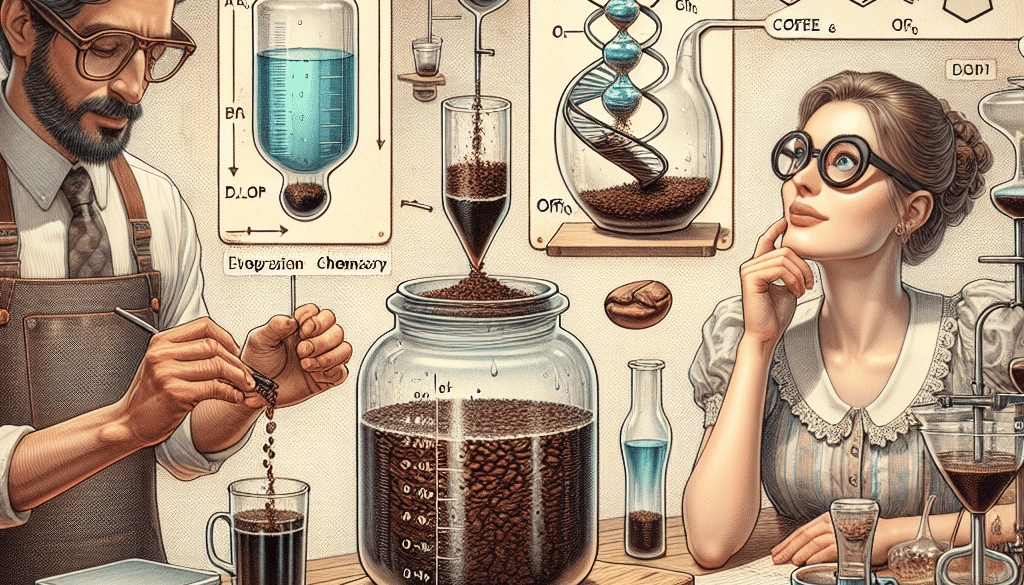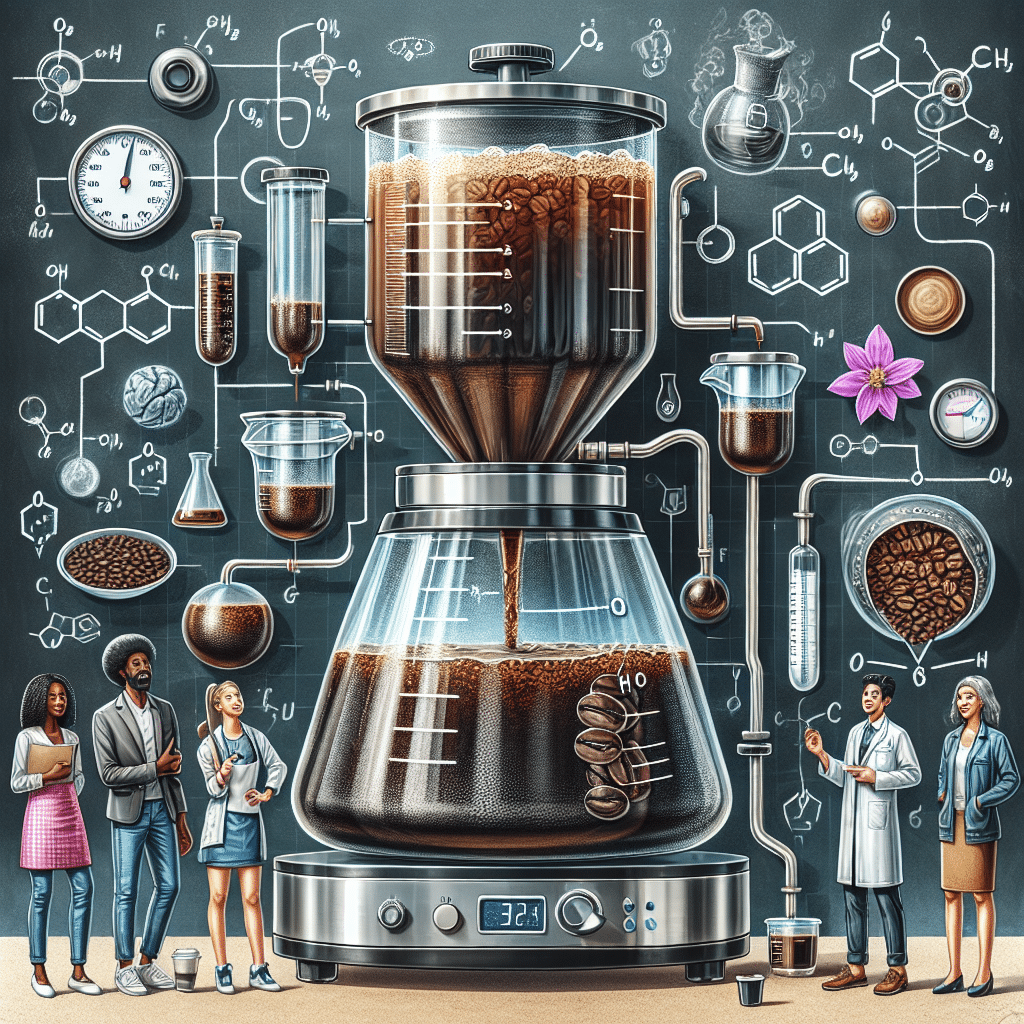Cold Brew Coffee Science: Making the Best Tasting Beverages
-
Table of Contents
- Cold Brew Coffee Science: Crafting the Perfect Sip
- The Basics of Cold Brew Coffee
- Understanding the Extraction Process
- Chemistry of Cold Brew: Acidity and Bitterness
- Optimizing Flavor: The Role of Coffee Beans and Water Quality
- Techniques for the Perfect Cold Brew
- Case Studies and Statistics
- Conclusion: Summing Up Cold Brew Coffee Science
- Discover ETChem’s Protein Products
Cold Brew Coffee Science: Crafting the Perfect Sip
Cold brew coffee has become a staple in the coffee lover’s repertoire, offering a smooth, rich, and less acidic alternative to traditional hot brewed coffee. But what is the science behind this trendy beverage, and how can you make the best-tasting cold brew at home or in your café? This article delves into the intricacies of cold brew coffee science and provides insights into creating the ultimate cold brew experience.
The Basics of Cold Brew Coffee
Cold brew coffee is made by steeping coarsely ground coffee beans in cold water for an extended period, typically 12 to 24 hours. Unlike hot coffee, which extracts flavors and oils quickly due to high temperatures, cold brew relies on time to gently coax out the desired compounds from the coffee grounds.
Understanding the Extraction Process
The extraction process is at the heart of making any coffee, and cold brew is no exception. The key factors influencing extraction in cold brew are:
- Time: The extended steeping time allows for a gradual extraction, which can lead to a more nuanced flavor profile.
- Temperature: The cold water slows down the extraction process, reducing the amount of acidic compounds that are typically released at higher temperatures.
- Grind size: A coarse grind is preferred for cold brew to prevent over-extraction and bitterness.
- Water-to-coffee ratio: This can vary depending on personal taste, but a common starting point is a 1:8 coffee-to-water ratio.
Chemistry of Cold Brew: Acidity and Bitterness
One of the most significant differences between cold brew and hot coffee is the acidity level. Cold brew is often touted for its low acidity, which can be easier on the stomach and teeth. The science behind this lies in the temperature of the water used for extraction. Certain acidic compounds, such as chlorogenic acid, which can break down into quinic and caffeic acids during hot brewing, are less likely to be extracted at lower temperatures. This results in a smoother, sweeter cup of coffee that is less likely to cause discomfort for those with acid sensitivity.
Optimizing Flavor: The Role of Coffee Beans and Water Quality
The choice of coffee beans and water quality can significantly impact the taste of your cold brew. Here’s how:
- Coffee Beans: The origin, roast level, and freshness of the beans will affect the flavor. Lighter roasts tend to retain more of their original characteristics, while darker roasts can impart a bolder, more robust taste.
- Water Quality: Since coffee is over 98% water, the quality of the water used is crucial. Filtered or spring water is recommended to avoid off-flavors that can be introduced by tap water impurities.
Techniques for the Perfect Cold Brew
To make the best-tasting cold brew, consider the following techniques:
- Use freshly ground coffee to ensure maximum flavor.
- Experiment with steeping times to find the perfect balance for your taste preference.
- Stir the mixture gently before steeping to ensure all grounds are fully saturated.
- Filter the coffee carefully to avoid any sediment in your final cup.
Case Studies and Statistics
Several studies have shown that cold brew coffee can have different chemical profiles compared to hot brew, affecting not only taste but also potential health benefits. For instance, a study published in “Scientific Reports” found that cold brew coffee has lower antioxidant capacity than hot brew. However, the preference for cold brew continues to grow, with the market expected to expand significantly in the coming years, indicating a strong consumer preference for its taste and convenience.
Conclusion: Summing Up Cold Brew Coffee Science
The science of cold brew coffee is a fascinating blend of chemistry, technique, and personal preference. By understanding the factors that affect extraction, such as time, temperature, grind size, and water quality, you can experiment and refine your cold brew process to create a beverage that is not only delicious but also tailored to your individual taste. Whether you’re a home enthusiast or a professional barista, the quest for the perfect cold brew is an ongoing journey of discovery and enjoyment.
Discover ETChem’s Protein Products
If you’re interested in enhancing your cold brew coffee with a nutritional boost, consider exploring ETChem’s protein products. Their high-quality collagen can be seamlessly integrated into your cold brew, adding a layer of health benefits without altering the taste. ETChem’s commitment to quality and versatility makes their protein products an excellent choice for those looking to combine the art of coffee with the science of nutrition.
About ETChem:
ETChem, a reputable Chinese Collagen factory manufacturer and supplier, is renowned for producing, stocking, exporting, and delivering the highest quality collagens. They include marine collagen, fish collagen, bovine collagen, chicken collagen, type I collagen, type II collagen and type III collagen etc. Their offerings, characterized by a neutral taste, instant solubility attributes, cater to a diverse range of industries. They serve nutraceutical, pharmaceutical, cosmeceutical, veterinary, as well as food and beverage finished product distributors, traders, and manufacturers across Europe, USA, Canada, Australia, Thailand, Japan, Korea, Brazil, and Chile, among others.
ETChem specialization includes exporting and delivering tailor-made collagen powder and finished collagen nutritional supplements. Their extensive product range covers sectors like Food and Beverage, Sports Nutrition, Weight Management, Dietary Supplements, Health and Wellness Products, ensuring comprehensive solutions to meet all your protein needs.
As a trusted company by leading global food and beverage brands and Fortune 500 companies, ETChem reinforces China’s reputation in the global arena. For more information or to sample their products, please contact them and email karen(at)et-chem.com today.





